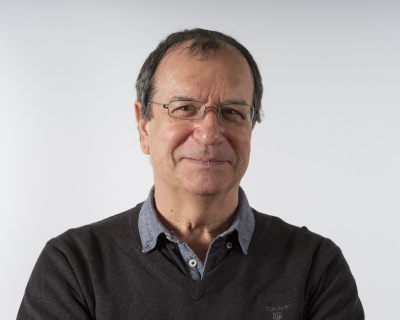Domenico Bosco

Prof. Domenico Bosco
Isolation et transplantation cellulaires
Domenico Bosco obtained his PhD at the University of Geneva School of Medicine in Geneva in 1991. From 1991 until 1997, he was Maître-assistant in the Department of Morphology (Medical School, University of Geneva, Geneva) and from 1997 until 2001, Maître-assistant in the Laboratoires de Recherche Louis-Jeantet (Medical School, University of Geneva, Geneva). He was Biologist, at the Cell Isolation and Transplantation Center, Department of Surgery, since 2001; and “Chargé d’Enseignement”, Medical School, Univerity of Geneva, since 1998. He has just been promoted at professoral level in 2015.
Research aims (Collaboration with Prof. Berney)
Function and survival of endocrine cells after islet transplantation
This research consists in studying methods to improve yield and survival of islets prior transplantation and optimize engraftment and survival of islets after transplantation. The investigation of early events in islet transplantation should bring to light mechanisms that are probably uniformly important for autologous, allogeneic and xenogeneic islet transplantation. Early inflammatory events, involving islet-macrophage interaction, negatively affect the function or the viability of transplanted islets. The mechanisms by which macrophages and lymphocytes are activated in the islet microenvironment and how they affect function and viability of islet cells are not well elucidated. One major aim of their research is to explore the molecular mechanisms involved in these events.
The processes that negatively influence the survival and function of isolated islets, before and after transplantation, are diverse, complex as well as not completely elucidated. In many tissues or organs, it has been shown that intercellular interactions, mediated by adhesion molecules, are fundamental for cell survival, proliferation and function. They speculate that perturbed intercellular contacts in islets following isolation procedure (involving enzymatic digestion and other upsetting operation) may lead to islet cell death and dysfunction. In islets, E-cadherin has been shown to be involved in endocrine cell differentiation and aggregation and in the maintenance of islet architecture.Now, they investigate whether E-cadherin plays a role in the survival and function of human islets both in culture before transplantation and during cytotoxic insults after transplantation.
